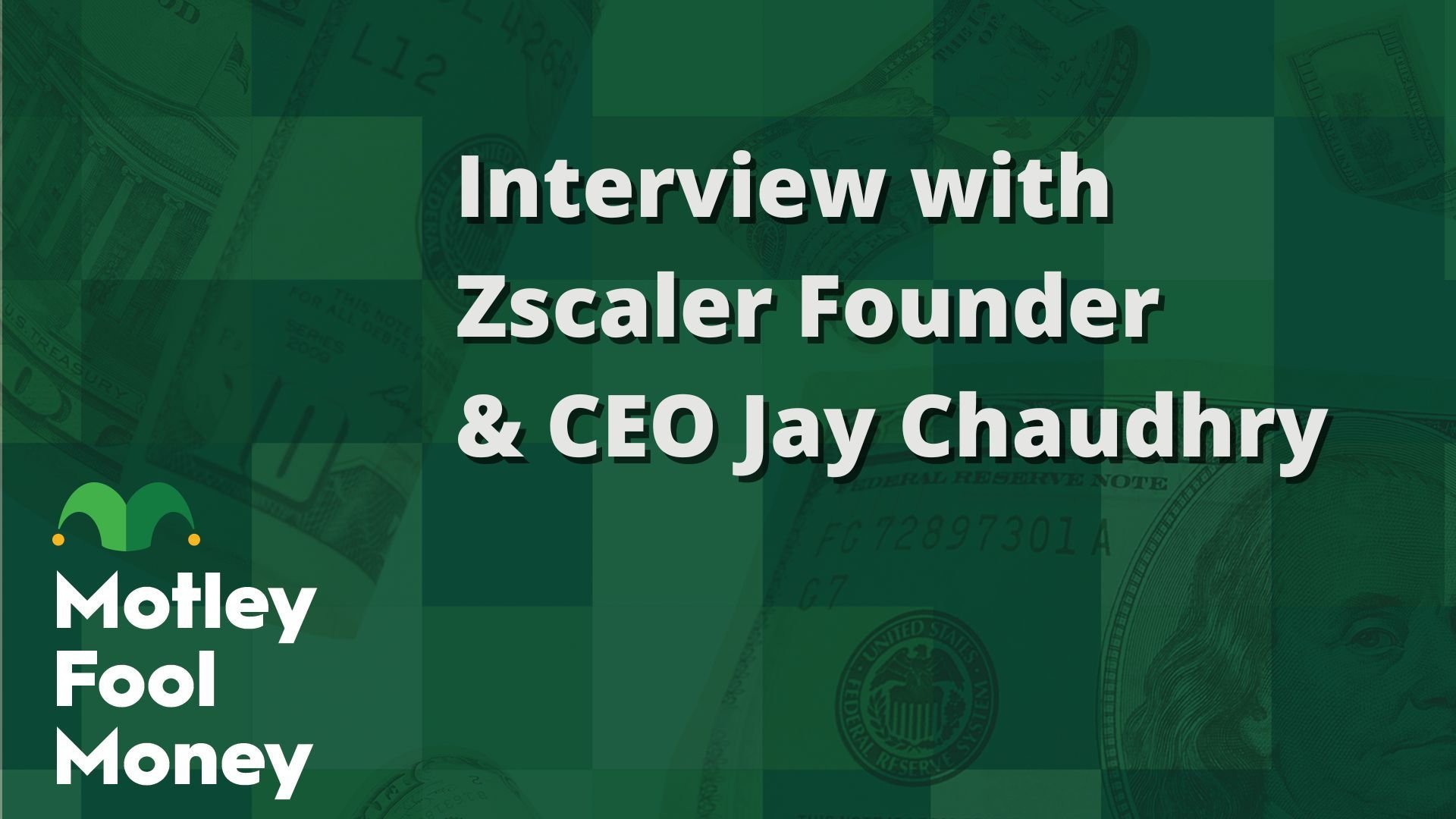Change comes slowly to Wall Street. The trading culture there took almost two centuries to get away from valuing stocks in eighths and sixteenths of a dollar because that's how it was done when the dominant currency was the gold doubloon. So the philosophical disconnect between financial folks and tech disruptors is naturally a wide one.
And as Alison Southwick reveals to cohost Robert Brokamp in the What's Up, Alison? segment of this Motley Fool Answers podcast, the tech world is poised to stop accepting the status quo on two major fronts: how companies go public, and the corporate behaviors that stock exchanges promote.
To catch full episodes of all The Motley Fool's free podcasts, check out our podcast center. A full transcript follows the video.
This video was recorded on June 18, 2019.
Robert Brokamp: Alison, what's up?
Alison Southwick: Is that how you normally say it?
Brokamp: I never know how it's going to come out.
Southwick: All right, whatever. Well, Bro, I have three things for you today.
Brokamp: Three things? That sounds awesome!
Southwick: It does. It might sound familiar. They're really one thing, but...all right, whatever. Just stick with me.
So for some of our more seasoned investors out there, you'll remember a time when stocks used to trade in fractional shares.
Brokamp: Oh, I do remember that!
Southwick: One-sixteenth, to be exact. Do you know why?
Brokamp: I don't remember.
Southwick: Oh, here's why. OK, this is crazy. So, going back 400 years, Spanish traders used gold doubloons, which were divided into eight pieces...
Brokamp: All right. Pieces of gold!
Southwick: ... so you could count them on your fingers and thumbs didn't count, literally, so everything was in eighths.
Brokamp: They're all Simpsons characters. They didn't have five fingers.
Southwick: There you go! So unlike currencies that have a base of 10, Spanish gold doubloons had a base of eight, meaning that the smallest denomination was one-eighth of a doubloon. And when the New York Stock Exchange was founded in 1817, it was based on none other than this Spanish trading system. Then, in 1997, they cut that one-eighth in half to one-sixteenth, aka...do you remember this? A "teenie." They called it a teenie. And they cut it from one-eighth to one-sixteenth during what was called the "teenie revolution," probably the most boring revolution ever. It wasn't until 2001, close to 200 years into the existence of the New York Stock Exchange, that it and other U.S. exchanges finally switched to decimals.
I was reading an LA Times article about this controversial time of going from fractionals to decimals and the article was citing some of the possible negative impacts of the switch and they had this gem. "But veteran trader Bernard Madoff said that professionals will find a way to make money." Indeed.
Brokamp: And he was right.
Southwick: Indeed they will, Bernie.
Brokamp: How's prison going?
Southwick: So, yes, it only took the New York Stock Exchange 200 years to switch over from an antiquated system of accounting, which tells you something about Wall Street's aversion to change and technology. This is all a long aside; but, again, try to stay with me. I'm trying to say that Wall Street doesn't like change and doesn't embrace technology, which brings me to my second thing: the battle between tech companies and Wall Street.
Is it any wonder that young [sassy] Silicon Valley doesn't love to work with stodgy old Wall Street? Often because Wall Street is interested in short-term gains while Silicon Valley leaders can be starry-eyed entrepreneurs with a long-term vision. So one trend we're seeing is that tech companies -- like Spotify -- are trying to avoid Wall Street, such as during the IPO process.
Let's remind everyone, briefly, how an IPO works. Feel free to interrupt me if I get anything wrong here. A company decides they want to go public, so they choose an investment bank for advice in underwriting. They go on what's called a roadshow, where the investment bank makes pitches and sells shares of the company to its favorite clients and cronies, often at a lowball price. The favorite clients and cronies are hoping that if they buy the shares of the company, the stock will "pop" or go up really fast and high on the first day of its trading on the secondary market -- such as the NYSE or Nasdaq. So then these again favorite clients and cronies of the investment bank can unload the shares for a profit to people like you and me. Did I get that right?
Brokamp: It's about right, yes.
Southwick: Let's say you're a tech company going public in this scenario. You're using the IPO process to generate more capital by selling shares of your business so you can take that money and invest it back into the company and make it grow. Your major money-making event is when the investment bank is selling shares to its favorite clients and cronies, where, like I said, they tend to lowball the price so that the investors get that pop.
It means as a tech company, you're selling yourself on sale and the investors are the ones who benefit. Maybe some of them are truly invested in you and your company for the long haul, but most are just looking to resell the shares they got on sale for full price -- again, when the shares go on the secondary market on the NYSE. Did I get that right?
Brokamp: I think so.
Southwick: So Spotify decided to go a different route and just do a direct listing. Rather than selling shares to institutional investors in advance of the first day of trading, it allowed its existing shareholders to directly offer their holdings through the market. With the direct listing the bank won't set the price. It's pure supply and demand on the secondary market.
As CNBC said, "By almost any standard, the Spotify IPO has been a success." Granted, Spotify wasn't looking to raise any money. They had plenty of VC cash. Also, Spotify had a desirable name for retail investors, so there was probably pent-up demand. But could companies like Airbnb or other unicorns follow suit? Slack is. Well, we'll see if this happens more.
As John Fitzgibbon of IPOScoop says, we shouldn't expect Wall Street to embrace direct listings as a viable option, "because there's very little payday for Wall Street in a direct listing," which is exactly the point, and brings me to my final and third thing. If tech companies don't love Wall Street, is there a way to make a better Wall Street?
What's most wrong with the equities market? Eric Ries, tech entrepreneur and author of The Lean Startup believes that today's companies are too focused on things that revolve around short-term price increases, such as beating quarterly projections by Wall Street analysts, shrinking their budgets of research and development to cut costs, [and] dealing with activist investors. He believes the market's focus on short-term quarterly results leads to a decline in innovation and he points to a 2017 study by the public policy think tank Third Way, which showed that going public with a company [caused] a 40% decline in patents within five years after listing. [It's because of] the result of pressure to satisfy analysts' short-term expectations, they say.
This also makes going public less enticing for companies, especially with VC money floating around. They don't really need to do it. By the time these companies IPO -- we can start investing in them, meaning you and me -- most of the growth could be in the rearview mirror.
So here's [an idea by] Eric Ries, tech entrepreneur and author of The Lean Startup. Just last month the SEC approved the creation of...did you hear about it?
Brokamp: I didn't.
Southwick: ...the Long-Term Stock Exchange. Or the LTSE. I think it should be called the "lit-zy".
Brokamp: The lit-zy.
Southwick: Or something like that. Isn't that cuter? It's a Silicon Valley-based exchange aimed at tech start-ups that want to go public while taking their time to develop their products and services. With the LTSE there will be rules to limit executive bonuses, require more disclosure for milestones, and reward long-term shareholders with more voting power. Executive pay and bonuses must be tied to long-term performance, such as 10 years.
Yeah! So LinkedIn's Reid Hoffman, Marc Andreessen, and Peter Thiel's Founders Fund are investors in the Long-Term Stock Exchange. Of course, it's targeting companies that would be tech. Companies can do a list on the LTSE and the NYSE and they hope to start accepting clients by the end of the year. It will be the 14th equity market in the U.S. Isn't that crazy?
There's still a lot to be figured out with the LTSE, but it's exciting to see innovation, especially innovation intended to benefit those who think long term -- you know, Foolish investors. And that, Bro, is what's up.





